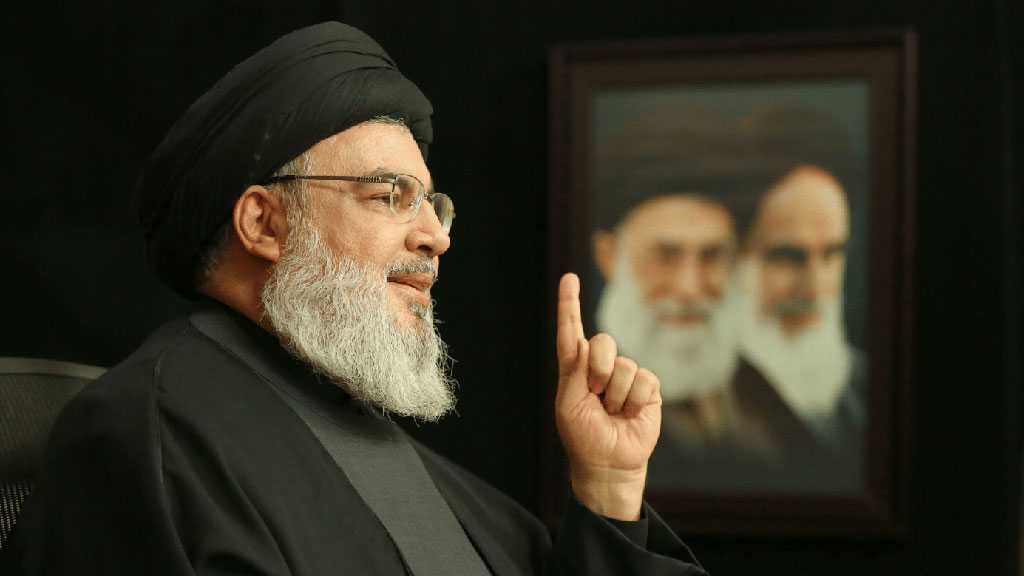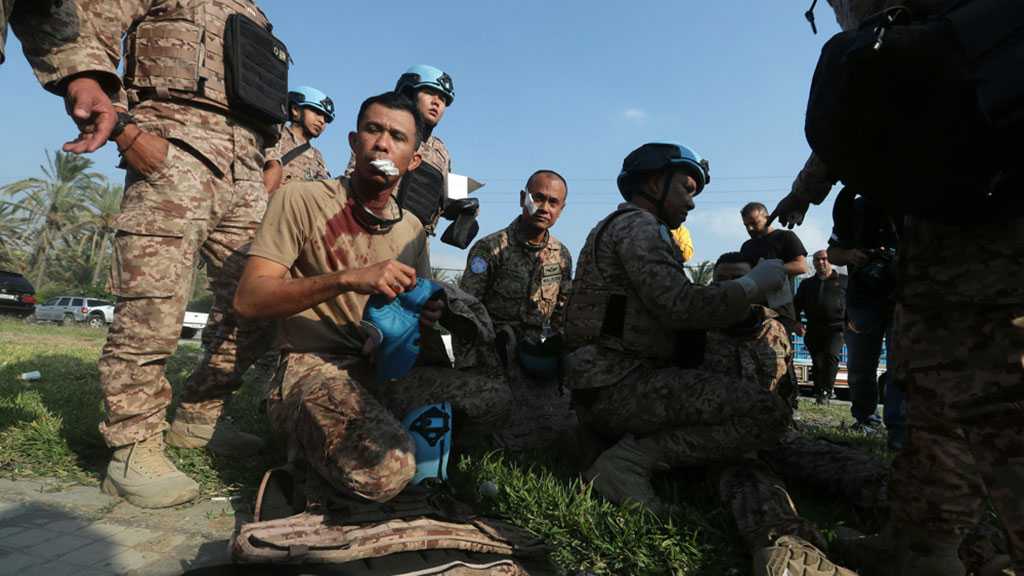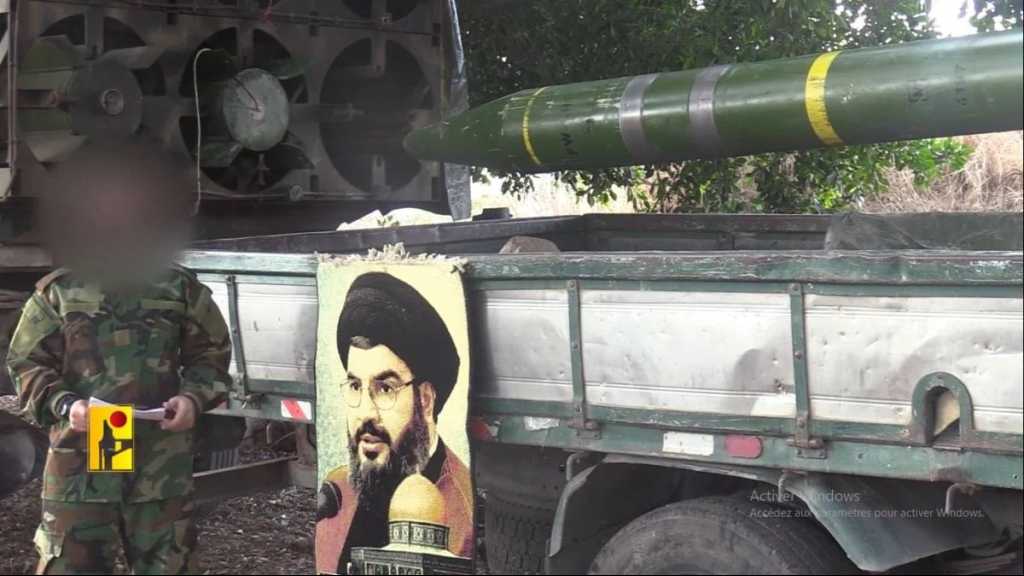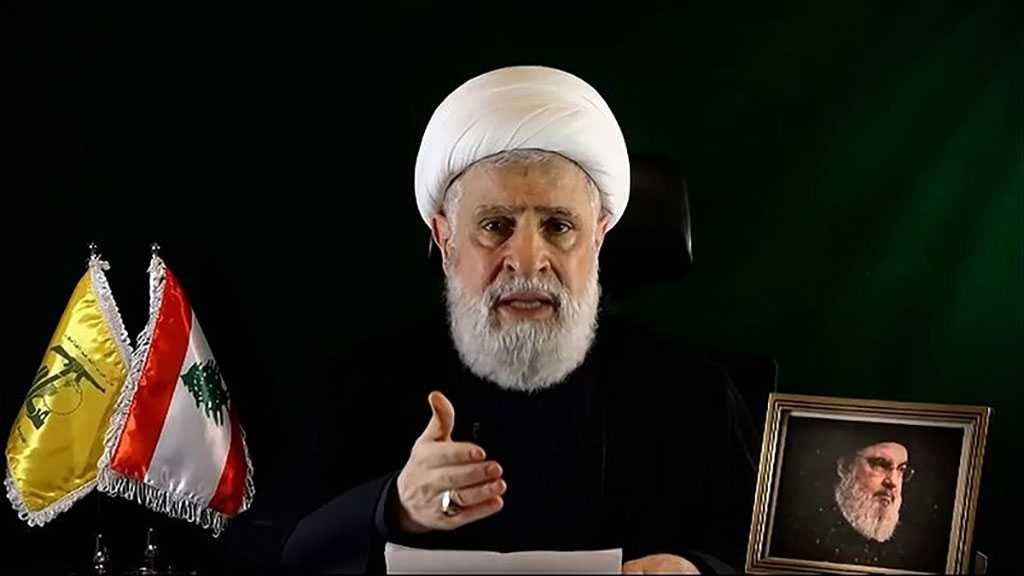Sayyed Nasrallah’s Mastery of Psychological Warfare: A Strategic Analysis of His Speeches

By Al-Ahed News, Alma
Hezbollah Secretary General His Eminence Sayyed Hassan Nasrallah has long been recognized for his ability to effectively wield psychological warfare through his speeches.
His rhetorical skills not only serve as a means of communication but also as a strategic tool in Hezbollah’s broader military and political objectives.
A report by the “Israeli” Alma Research and Education Center delved into how Sayyed Nasrallah’s speeches are pivotal in Hezbollah's psychological warfare strategy, focusing on the key methods and narratives employed to achieve his cognitive and psychological goals.
According to the Alma report, Sayyed Nasrallah’s speeches are meticulously crafted to address multiple audiences simultaneously. These include Hezbollah’s supportive Shiite base in Lebanon, opponents within Lebanon, the “Israeli” public and the broader Arab and international communities.
Each of these audiences receives tailored messages designed to reinforce Hezbollah's position, demoralize adversaries and galvanize support.
For the Shiite base in Lebanon, His Eminence underscores Hezbollah’s role as the defender against external threats, particularly from “Israel”. This approach solidifies the loyalty and morale of his core supporters.
Domestically, Sayyed Nasrallah frames the Resistance as a national duty rather than a sectarian agenda.
His rhetoric also targets the “Israeli” public by exposing perceived weaknesses in the “Israel” Occupation Force [IOF] and showcasing Hezbollah’s striking capabilities. This strategy is designed to erode confidence in the “Israeli” entity and demoralize the public.
On the broader stage, the Hezbollah chief invokes the “Palestine Ideology,” connecting Hezbollah’s struggle with the Palestinian Cause to garner support from Arab and international audiences. This linkage broadens Hezbollah’s appeal beyond Lebanon by appealing to a shared sense of injustice and resistance against the “Israeli” entity.
The Alma report further explored the central motifs in Sayyed Nasrallah's speeches identifying recurring themes that form the backbone of Hezbollah’s narrative and psychological warfare strategy.
Central to these motifs is the “Palestine Ideology,” a concept rooted in the broader Islamic struggle against the apartheid “Israeli” entity.
Defined by the Leader of the Islamic Revolution, His Eminence Imam Sayyed Ali Khamenei, this ideology serves as a unifying framework bridging the ideological gap between Shiite Hezbollah and Sunni groups like Hamas.
Sayyed Nasrallah’s speeches are not merely addresses but are integral components of Hezbollah’s psychological warfare strategy, the Alma report adds.
Through targeted messaging, recurring motifs and the invocation of shared ideologies, the Resistance leader effectively touches both allies and adversaries.
His speeches are designed to maintain internal cohesion, demoralize enemies and position Hezbollah as a central player in the regional struggle against the apartheid “Israeli” entity.
Understanding the structure and content of Sayyed Nasrallah’s rhetoric provides insight into how psychological warfare can be conducted through well-crafted communication strategies.




